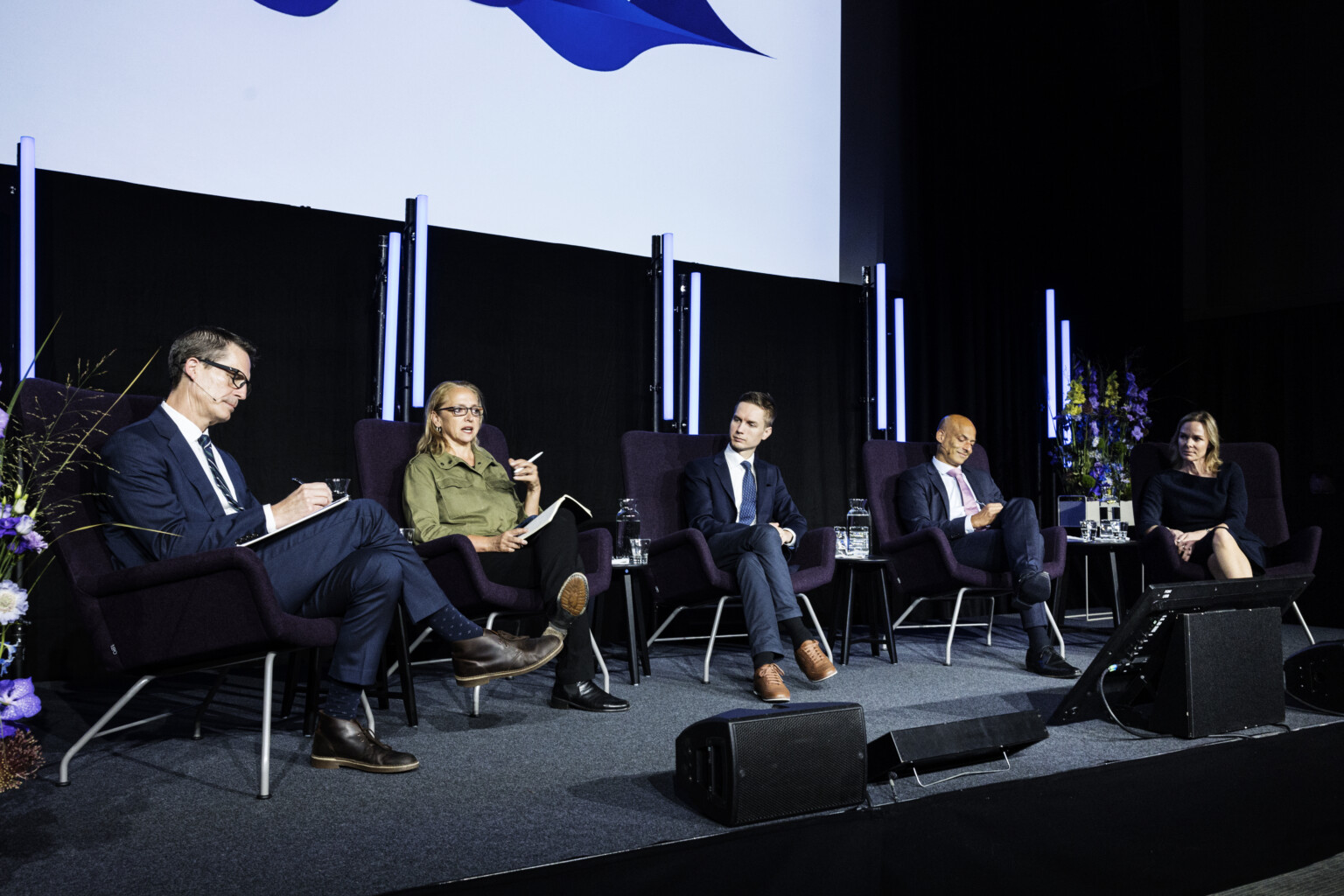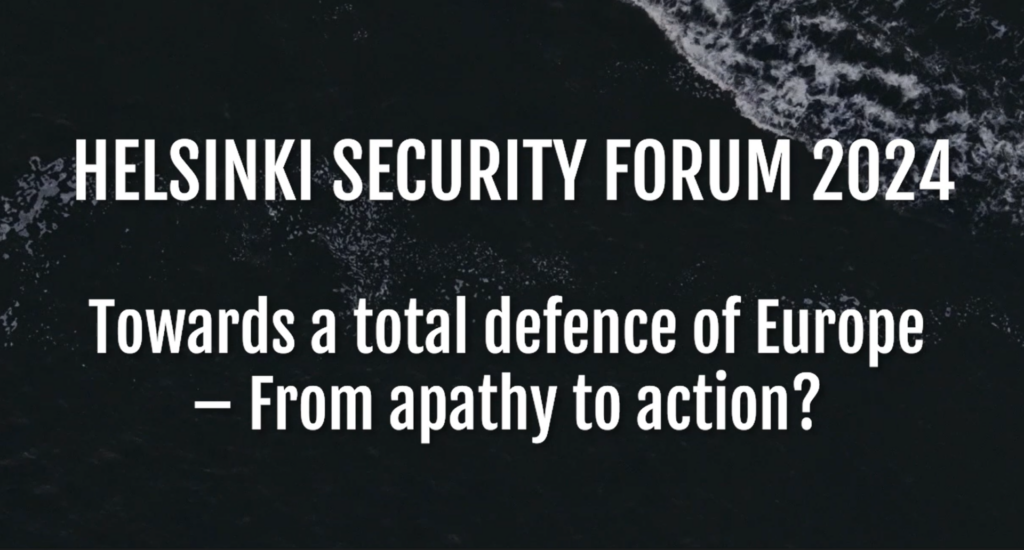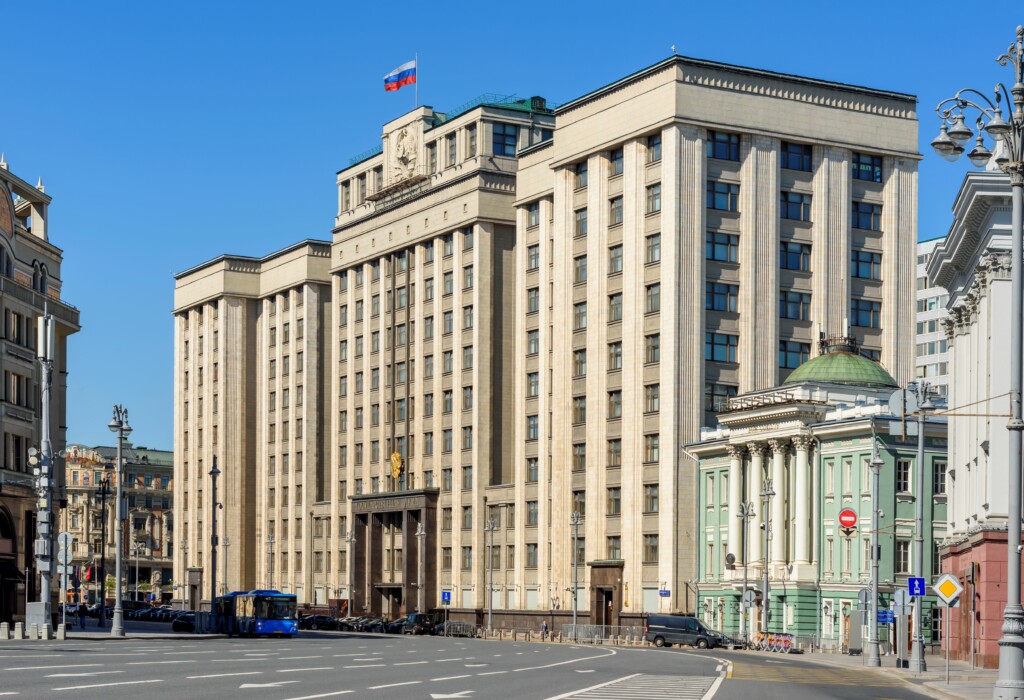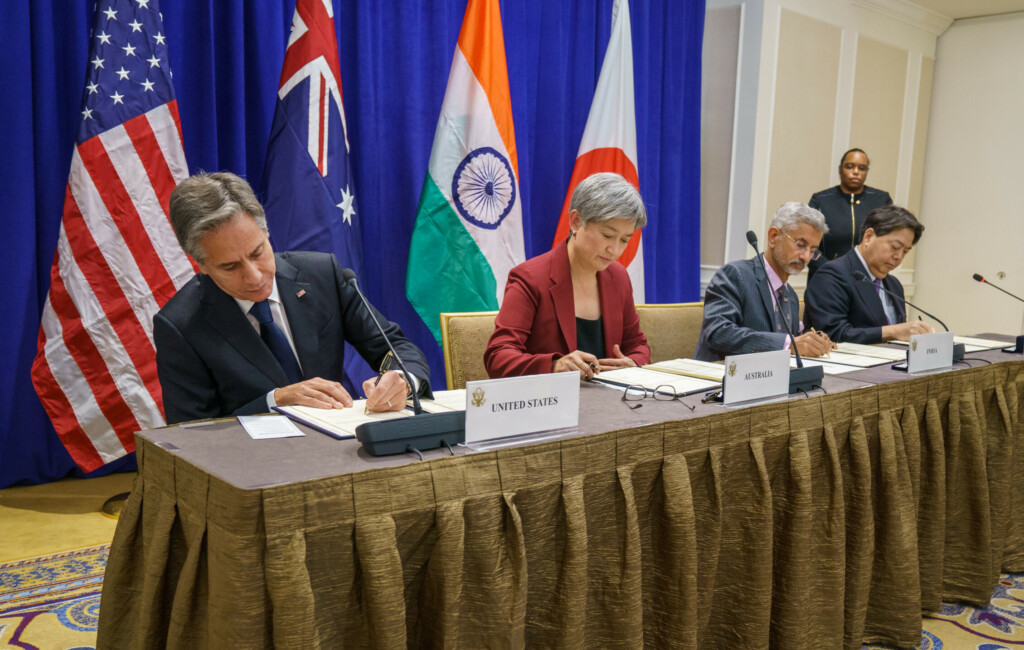Publications

Session II: Rapid technology development and societal security
The intersection of technology development and societal security is an increasingly pressing issue for governments and companies. In the second panel of Helsinki Security Forum 2023, the expert speakers addressed the topic on the conference stage.
Technology and especially artificial intelligence (AI) have developed rapidly. As technology plays a crucial role in the geostrategic competition, the theme was also touched upon in the second annual Helsinki Security Forum. Pulitzer-winning journalist from Washington Post and the moderator of the discussion, Greg Miller, was joined on stage by the speakers Senior Vice President Wendy R. Anderson from Palantir Technologies, NATO Deputy Assistant Secretary General for Emerging Security Challenges James Appathurai, Professor Anu Bradford from Columbia Law School and Pekka Laurila, Co-Founder of ICEYE.
“Ukraine might be one of the tech-savviest countries in all of Europe at this particular point”
The topic of AI and technology was first addressed in the context of Ukraine. Since the outbreak of the war, the intersection of technology and warfare has gained more attention. According to Wendy Anderson, there is a very compelling set of ways Ukrainians are using software from which they gain advantage.
“Ukraine might be one of the tech-savviest countries in all of Europe at this particular point”, Anderson argues.
AI and technological capabilities are mostly developed in the private sector which creates both challenges and possibilities for public actors. According to the speakers, the war in Ukraine has altered the nature of the relationships between the private and public sectors in the field of defence.
“Commercial drones have become a very widely utilized tool in the battlefield. Space technologies are now utilized in a similar way”, Pekka Laurila, co-founder of ICEYE, a company that makes satellites, describes.
Despite employing technical capabilities, there is a lack of capacity in situational awareness. Pekka Laurila noted that in the future, space superiority can offer full visibility of the battlefield in real time, ultimately meaning controlling the information sphere.
“Technology has become the battlefield for great power competition and the US-China rivalry.”
The speakers also addressed the theme of strategic competition. Technology has become the battlefield for great power competition and the US-China rivalry, noted Professor Anu Bradford. She described both countries as technological superpowers. China has declared that it aims to be an AI superpower by 2030, while the US acknowledges that it is a real possibility.
To become an AI superpower, a country needs data, computing power, talent and institutions able to adopt and integrate technologies. According to Bradford, there is no evident answer as to who will win the AI race.
“Each power struggles in some dimensions.”
As great powers prepare their technological capabilities in an accelerating pace, including software into the toolbox of NATO is called for. The war in Ukraine has highlighted the power of software and data in modern warfare. According to James Appathurai, there has been progress on this front.
“Allies recently agreed that money allocated to NATO’s newly founded technology fund will be counted against the 2% defence spending.”
“AI needs regulation, but there is no consensus on what that should look like.”
Moderator Greg Miller led the discussion toward the regulation of and a potential international framework for AI and technology in the dawn of a new age of technology.
Bradford pointed out that although there seems to be an international agreement that AI needs regulation, there is no consensus on what it should look like. Major economic and digital powers – the US, China and the EU – have each chosen a different path. An international treaty to limit the use of AI-enabled autonomous weapons does not exist. Likewise, such a treaty is unlikely to be negotiated in today’s political climate.
Appathurai argued that the military use of AI is the least of the worries regarding the threats of AI. He named disinformation, deep fakes and political interference as more alarming threats. According to Appathurai, cyber defences are also fundamentally undermined by generative AI, which gives everyone a chance to create malicious viruses or even search for instructions for building chemical weapons with household products.
“These tools are available to everybody. They are out in the dark web and they can’t be controlled.”
Watch the whole discussion here and read more on the topics of HSF 2023 here.

Helsinki Security Forum 2024 addresses the need for European total defence
The third annual Helsinki Security Forum (HSF) will be held on 27–29 September 2024. This year’s conference is titled Towards...

for HSF Blog
Rejecting Russian Spheres of Influence
The EU has rejected the language of spheres of influence in favour of an international order based on common rules...

for HSF Blog
Reverberations in the Indo-Pacific of the War in Ukraine
Russia’s war of aggression against Ukraine has had significant ripple effects in Indo-Pacific security dynamics and ongoing great-power competition.